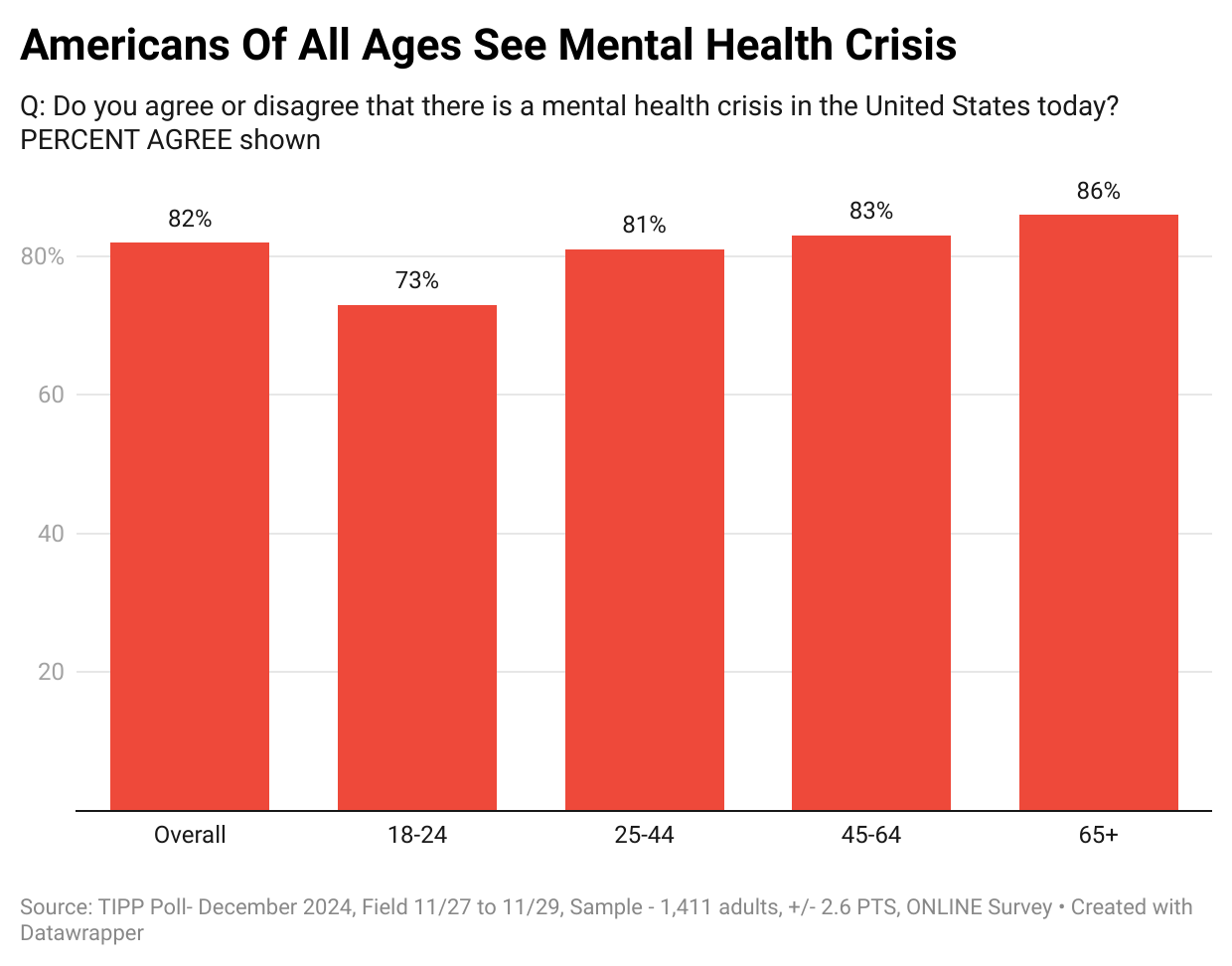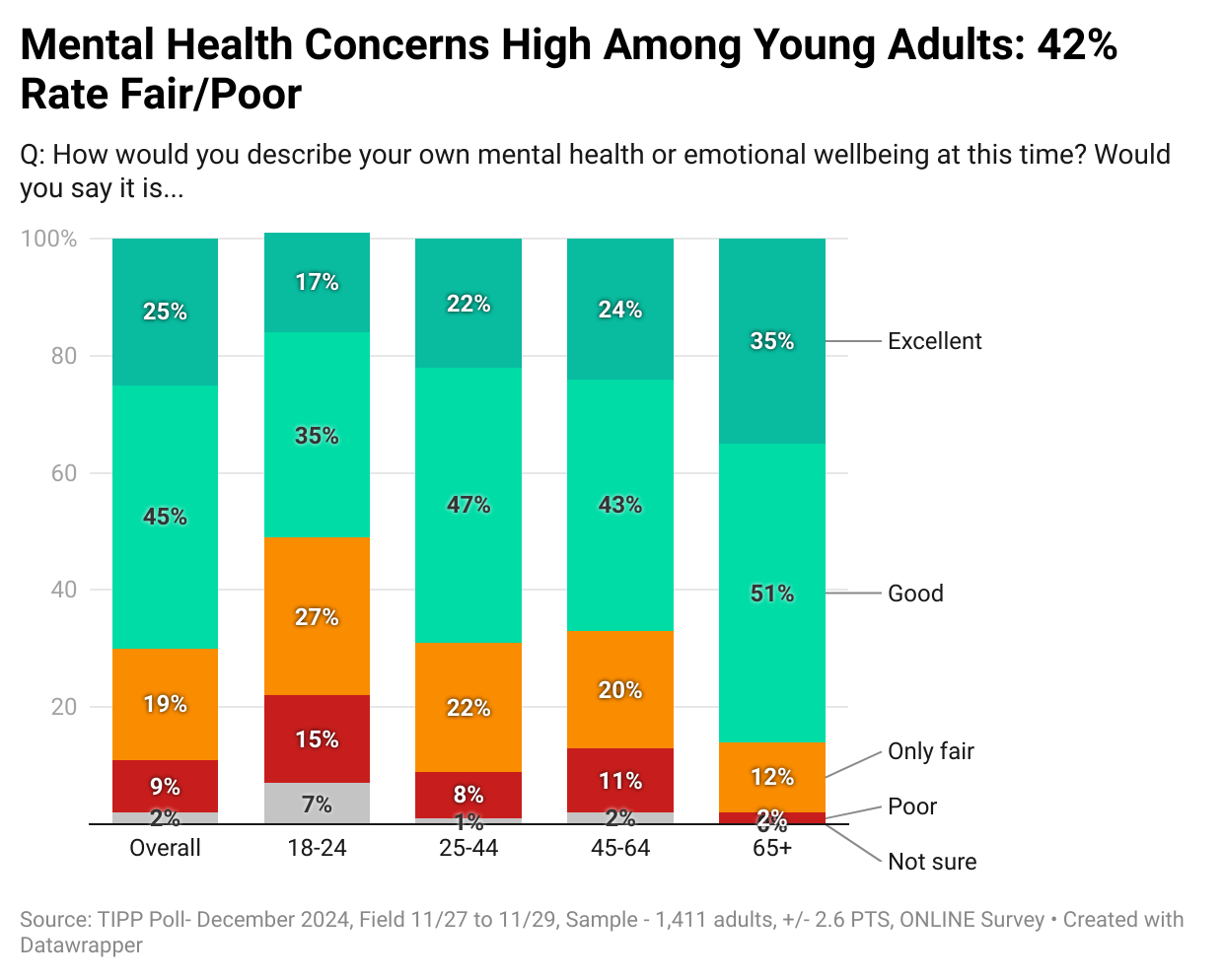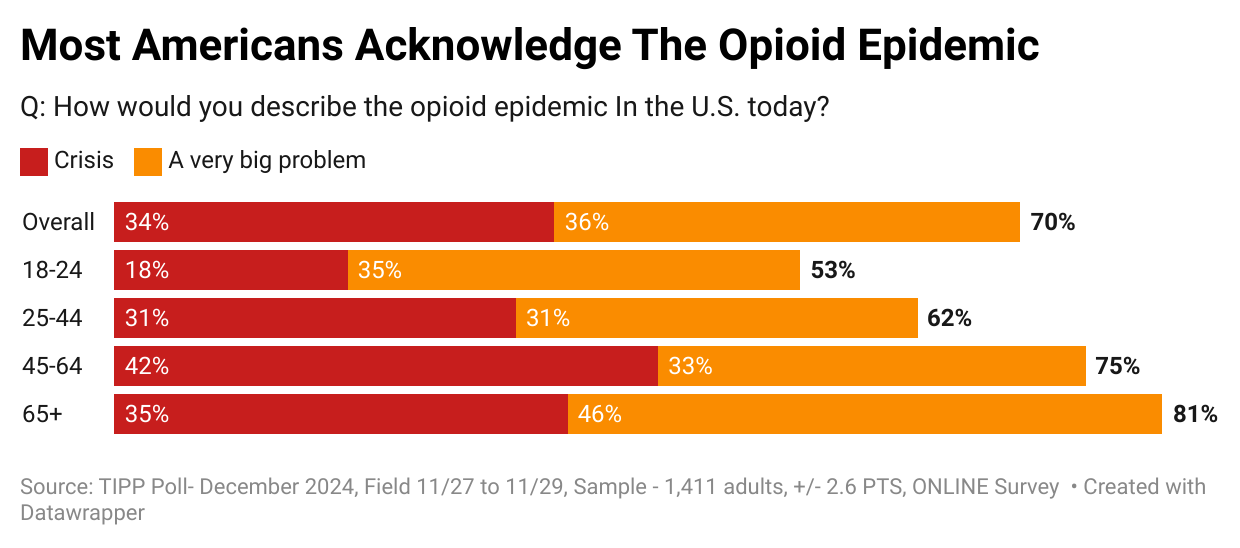Mental health - the term has lost some of its stigma and become a part of the mainstream conversation over the past few years. Defined as a person’s emotional, psychological, and social well-being, it encompasses everything from a person’s thoughts and feelings to one’s ability to cope with stress or maintain healthy relationships.
Mental health issues and challenges affect people across age groups, racial backgrounds, income brackets, and other demographic criteria. The heightened awareness and discussions about the topic have brought to the fore its widespread nature. Medicos and other health workers have been referring to it as a “crisis” that requires attention and intervention.
A nationwide TIPP Poll of 1411 people, conducted at the end of 2024, confirmed that Americans are aware of the problem and concur with the medical professionals. More than four-fifths agreed that the country was facing a mental health crisis.

Mental health issues had begun to increase before the onset of Covid-19. The lockdowns and heightened uncertainty surrounding the pandemic made matters worse. According to the CDC, “One in five American adults experienced symptoms of anxiety and depression in 2023.”
Many factors contribute directly and indirectly to a person’s mental health. Financial struggles, unemployment, or financial uncertainty may cause anxiety. Changes in social settings, increased screen time, and decreased in-person contact lead to many feelings of isolation or loneliness. Constant exposure to negative news, online bullying, and the inability to fit in may create a sense of dismay and disconnect. Sedentary lifestyles, unhealthy food habits, and side effects of medications are also cited as causes.
Each person reacts and responds to situations and circumstances differently. While one may face financial challenges with calm logic, another may be able to handle emotional difficulties with little help. The awareness that one size does not fit all and that there is no shame in seeking help needs to percolate to all sections of society.
Despite the spread of the crisis, a majority (70%) of those who took part in the TIPP Poll described their mental health or emotional well-being at the time as excellent or good. Over a quarter (28%) said it was only fair or poor. Though the overall numbers project a promising picture, a closer look at the data reveals the gravity of the situation. Close to half, 42% of the youth (18-24 years) described their mental health as only fair. Nearly a third of young adults and middle-aged also feel their mental health is suffering.

The struggle is morphing into other troubles as people try to cope with their conditions without adequate help and support. Lack of access to mental health care, high treatment costs, poor insurance coverage for mental health services, and ingrained stigma around seeking support are all detrimental to the journey toward healing.
Many seek escape from their mental health troubles with drugs and opioids. Drug addiction and deaths due to overdosing have been steadily increasing across the country, prompting the authorities to term it an “opioid epidemic.”
A majority (70%) see the opioid epidemic as a crisis or a very big problem. More than half (53%) of the youth (18-24 years) agree, and so do 62% of those in the 25-44 age group and 76% of the 45-64 year-olds.

People suffering from severe mental health issues often resort to self-harm or violence against others due to their impaired judgment. Many attribute the rise in violent gun crimes to the prevalent mental health crises. Over two-thirds (66%) of the TIPP Poll participants see it as a crisis or a very big problem.

Though mental health has gained much-needed attention, much more needs to be done to facilitate healing. Educating people on the need to take charge of their mental health by adopting an active lifestyle and healthy diet, creating robust social networks, and seeking help whenever necessary will turn the tide. Increased awareness, easily accessible programs, and lowering the cost of treatment will go a long way in fighting the crisis.









